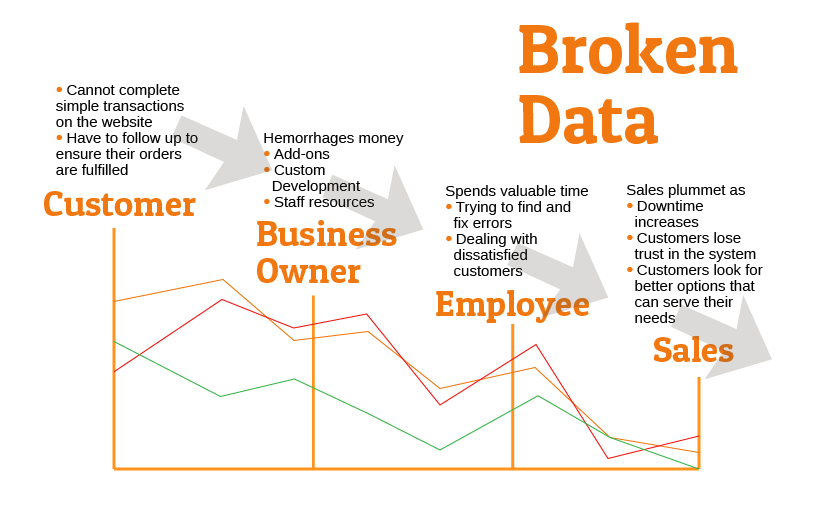Why Ecommerce with ERP Integration is Important

 Ecommerce with ERP integration plugs a business’s ecommerce site directly into their ERP, allowing customers access to a wide array of information. An ERP holds specific information about pricing, payment, shipping and history for each individual customer. It also tracks inventory, sourcing, financials, HR, warehousing and manufacturing information, giving a business an enterprise-level software solution. What’s missing in ERP software is an innate ability to interface with ecommerce. That’s what Website Pipeline does and here is why having this piece is so vital.
Ecommerce with ERP integration plugs a business’s ecommerce site directly into their ERP, allowing customers access to a wide array of information. An ERP holds specific information about pricing, payment, shipping and history for each individual customer. It also tracks inventory, sourcing, financials, HR, warehousing and manufacturing information, giving a business an enterprise-level software solution. What’s missing in ERP software is an innate ability to interface with ecommerce. That’s what Website Pipeline does and here is why having this piece is so vital.
Existing Customers - Protect and Serve. Customers not only want access 24 hours a day, they expect it. If one business does not meet their expectations there is always another business that will meet that customer’s needs. Offering account access via the ecommerce site with history, customer-specific pricing, quantity discounts, tax schedules, product/SKU aliases, product information, inventory levels, shipment tracking and payment details gives customers the ability to manage many aspects of their account whenever they want without relying on a representative to access their information.
Attract Similar Customers. Existing customers exhibit predictable online behaviors and personas that can be leveraged to create content specific to those personas. Using that content to create web pages, which cast a net for new traffic in search engines, will attract similar customers. Product pages, fed by product information directly from the ERP, provide additional data for the search engines to access.
Reduce Costs, Improve Efficiency. Ecommerce with ERP integration provides a personal web portal experience creating a more efficient and timely transaction for the customer that requires less direct contact. The majority of interactions between customers and employees have to do with checking prices or inventory, researching products, placing orders, tracking shipments, requesting receipts or return labels, inquiring about account history and paying invoices. Ecommerce with ERP integration grants the customer access to all this information from any internet-connected device, which reduces customer service demands significantly. Without the hours spent interfacing with customers and entering data into the ERP, employees have time to focus on new customer acquisition and other business objectives.
New Markets. In today’s marketplace, online sales show year-over-year gains where traditional avenues generally post losses. If a business is not already poised for online growth, they are behind the eight ball. Ecommerce with ERP integration is vital for expansion because it keeps data up to date uniformly across all business software. This shared mass of data is more flexible than having individual solutions. It is far easier to adapt one system than multiple systems. Ecommerce has risen over the last decade, and today businesses are adapting their systems to include mobile platforms. With Website Pipeline’s complete Ecommerce with ERP integration solution, adding mobile capability is as simple as installing a new module. As technology evolves, Website Pipeline continually solves new challenges and creates modules that can easily be incorporated into existing sites on their platform.
Ecommerce is a significant investment and it is important to ensure that this asset can keep up with new technology. Website Pipeline offers an adaptable solution that communicates with a business’s enterprise resource planning software.



.jpg)

